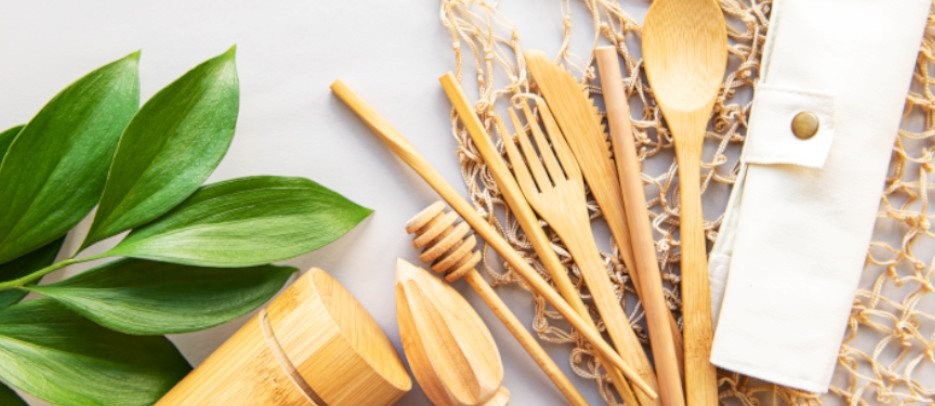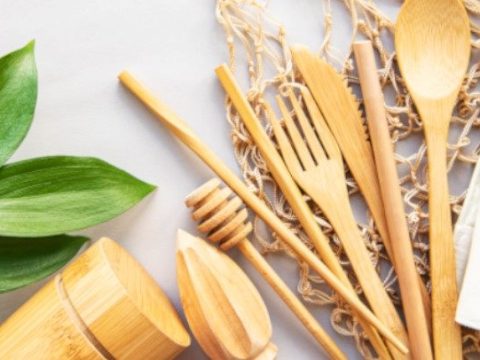Everything You Need to Know About Bamboo Kitchen Utensils
In a world increasingly focused on sustainable alternatives, bamboo is becoming a popular material for replacing common kitchen tools—especially plastic. Let’s explore what bamboo utensils you can use and how to properly care for them.
What Is Bamboo, Really?
Surprisingly, bamboo is a type of grass—not a tree—despite often being labeled as such. It grows extremely fast (holding the Guinness World Record for the fastest-growing plant) and regenerates naturally, making it one of the most eco-friendly materials available.
Why Use Bamboo Utensils?
- Eco-friendly and biodegradable – bamboo breaks down naturally without harming the environment.
- Untreated and non-toxic – a safer, healthier alternative to plastic.
- Lightweight and easy to use – ideal for daily kitchen tasks.
- Water-resistant and durable – unlike wood, bamboo won’t crack from moisture.
- Heat-resistant – won’t scratch pans or melt while cooking.
- Odor-neutral – doesn’t retain food smells.
With affordable pricing and growing availability, bamboo tools are an excellent investment for a cleaner, greener kitchen.
How to Choose the Right Bamboo Utensils
Start by replacing your current wooden spoons and spatulas. Bamboo is less porous, safer, and more hygienic. Buying utensil sets can be more cost-effective. Though most bamboo is imported from Asia, you can compare suppliers for quality assurance.
Also consider switching to bamboo cutting boards—especially if you prepare meat. Bamboo doesn’t absorb toxins or bacteria as easily as wood, making it a healthier option.
Stylish and Functional
Bamboo gives a modern, fresh, and warm touch to your kitchen. Whether your kitchen style is minimalist, colorful, or vintage, bamboo blends in beautifully.
Use bamboo placemats and table runners to replace synthetic fabrics. They’re easy to clean, heat-resistant, and safe for hot pots or pans. The same applies to bamboo coasters.
Bamboo Storage Accessories
For an organized and cohesive look, consider bamboo drawer inserts, utensil holders, bowls, and storage boxes. Bamboo bowls are perfect for storing bread and fruit—adding both function and natural style.
Care and Maintenance
Bamboo is more resistant than wood but still needs care:
- Don’t soak in water or put in the dishwasher.
- Rinse immediately after use—plain water is often enough.
- Scrub with a firm sponge if needed.
- Use a mild, eco-friendly dish soap for regular cleaning.
Store in a dry environment and clean them like any other kitchen item. For long-lasting results, apply a small amount of oil—such as coconut oil—every few weeks to hydrate and protect the surface. Treat your bamboo like you would your skin: give it some care, and it will last for years.


